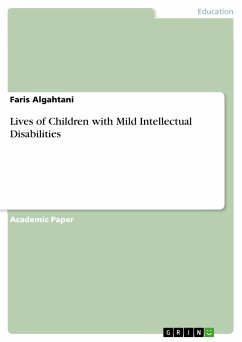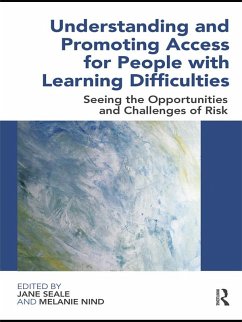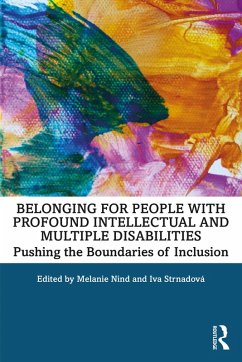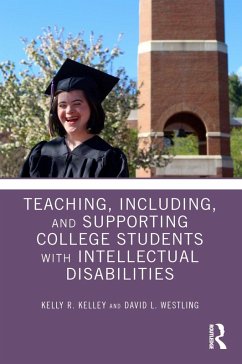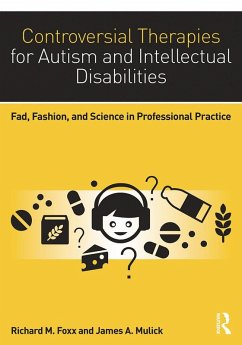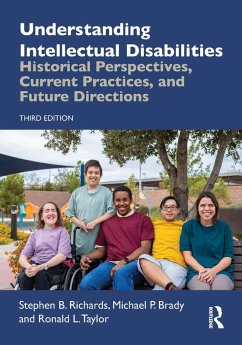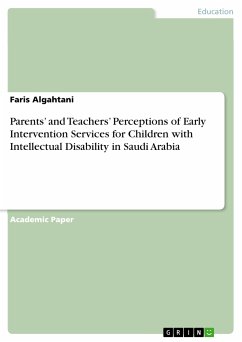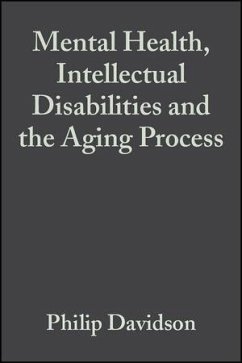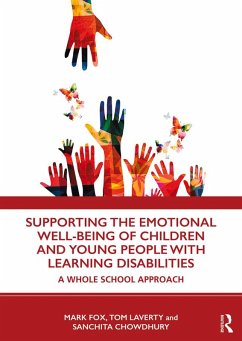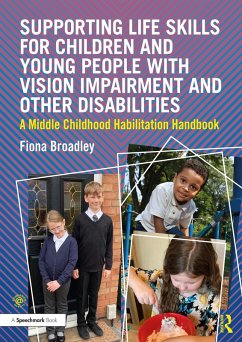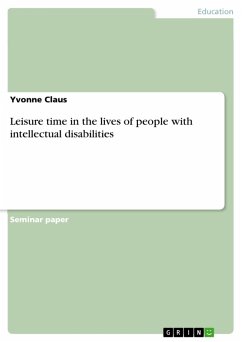
Leisure time in the lives of people with intellectual disabilities (eBook, PDF)

PAYBACK Punkte
0 °P sammeln!
Seminar paper from the year 2003 in the subject Pedagogy - Orthopaedagogy and Special Education, grade: 1, Martin Luther University (Institut für Pädagogik), language: English, abstract: Leisure time and leisure activities are a very important part of the social rehabilitation of people with intellectual disabilities. It offers the opportunity to eliminate exclusions and promote social integration. The offer of leisure time, education and cultural participation is as important for a meaningful and self-determined life as work. "Especially (above all) the field of leisure is attributed a fund...
Seminar paper from the year 2003 in the subject Pedagogy - Orthopaedagogy and Special Education, grade: 1, Martin Luther University (Institut für Pädagogik), language: English, abstract: Leisure time and leisure activities are a very important part of the social rehabilitation of people with intellectual disabilities. It offers the opportunity to eliminate exclusions and promote social integration. The offer of leisure time, education and cultural participation is as important for a meaningful and self-determined life as work. "Especially (above all) the field of leisure is attributed a fundamental (original) importance for life realisation, life satisfaction and life happiness, since leisure, unlike work, is not subject to coercion or pressure to perform, but is based on voluntariness, freedom and self-decision" (Theunissen 1995, p.70). In this paper I would like to deal with the topic of "leisure time in the lives of people with intellectual disabilities". In doing so, I would like to find answers to the following questions: What leisure needs do mentally disabled people have and what might influence them? What does the leisure situation of people with intellectual disabilities look like? What tasks does this give rise to for leisure time education? For the elaboration I mainly used books by H. Ebert, R. Markowetz and H. Opaschowski. To supplement my notes, I used literature by Zielniok, Theunissen and others. First, I will go into more detail about Opaschowski's positive concept of leisure time, as this can be applied to all population groups and is therefore also valid for people with disabilities. Then I will talk about leisure needs and the difficulties they face. I will then discuss the question of the leisure situation in order to be able to better explain the tasks and goals of leisure education.
Dieser Download kann aus rechtlichen Gründen nur mit Rechnungsadresse in A, B, BG, CY, CZ, D, DK, EW, E, FIN, F, GR, HR, H, IRL, I, LT, L, LR, M, NL, PL, P, R, S, SLO, SK ausgeliefert werden.




